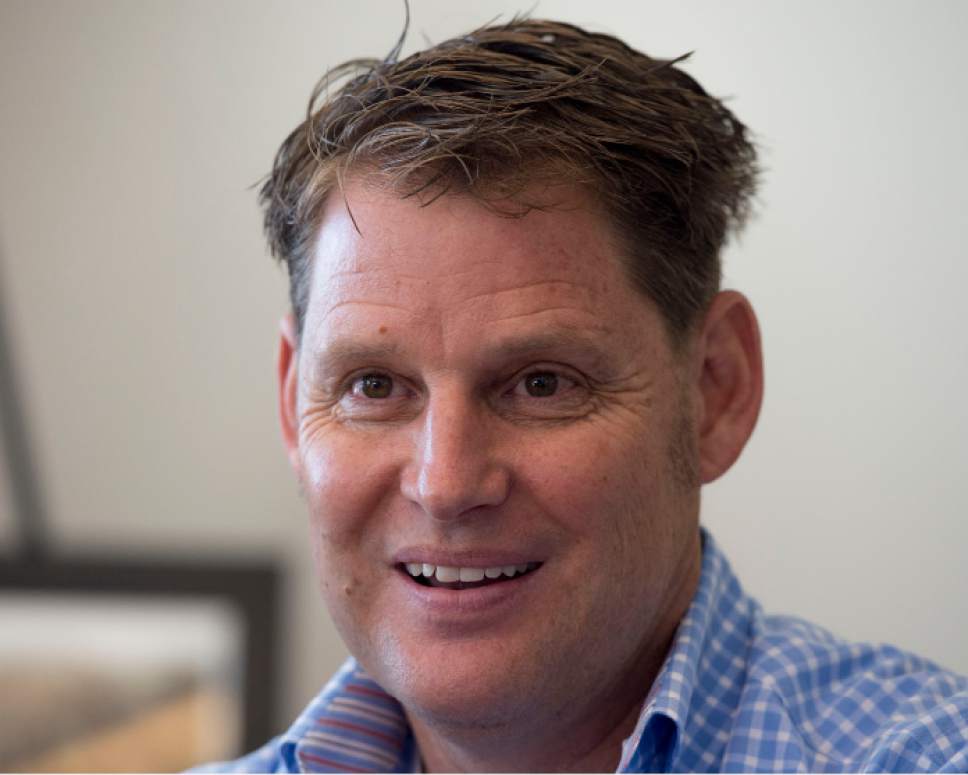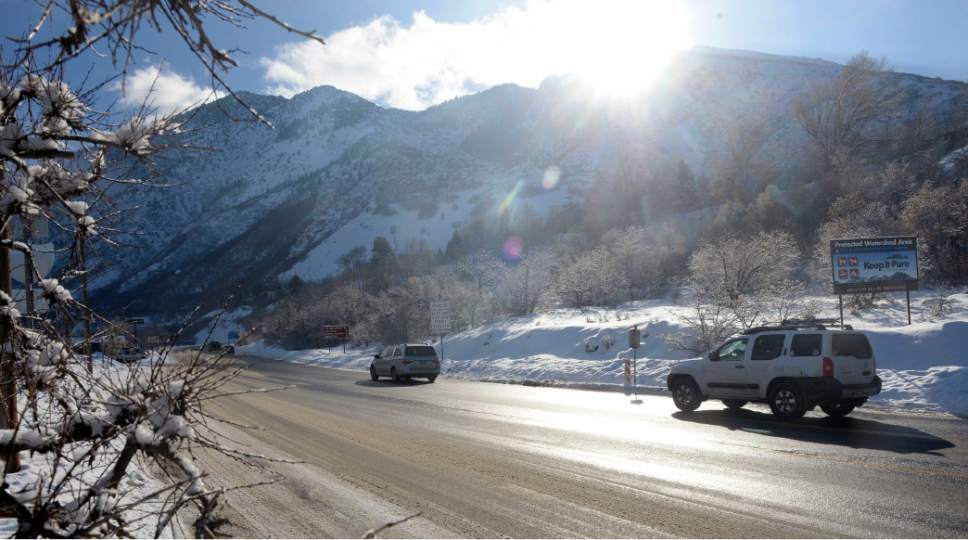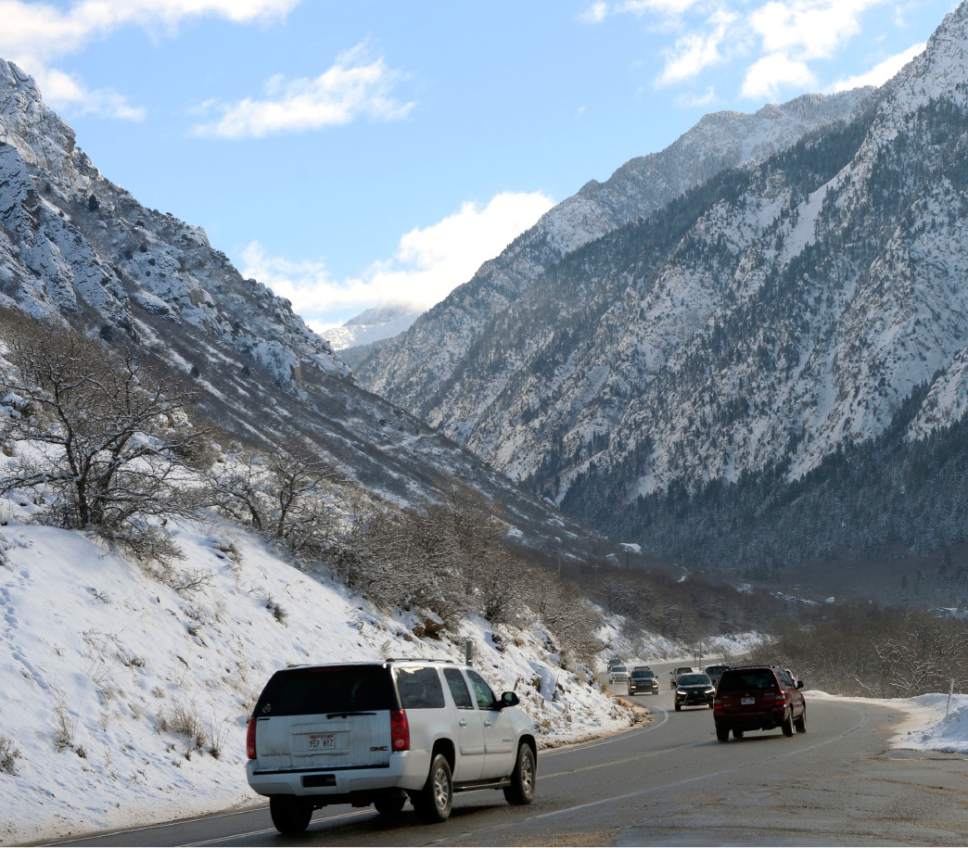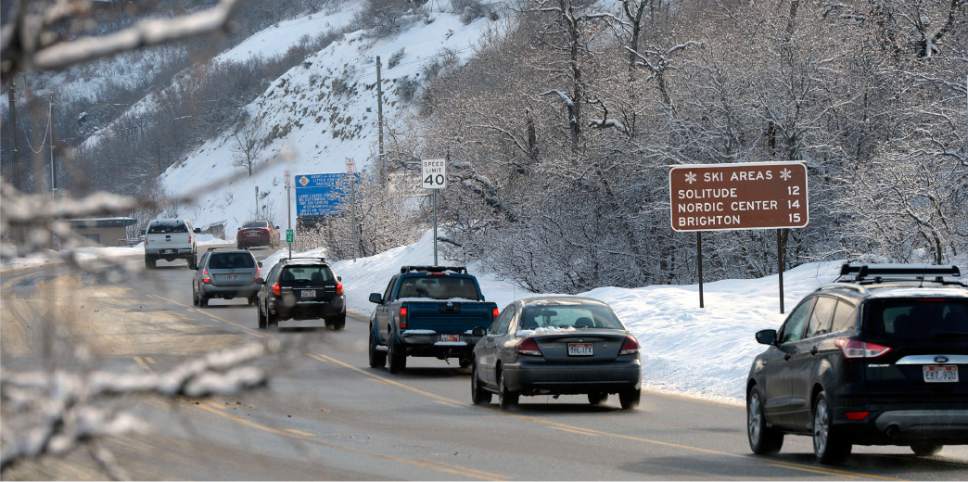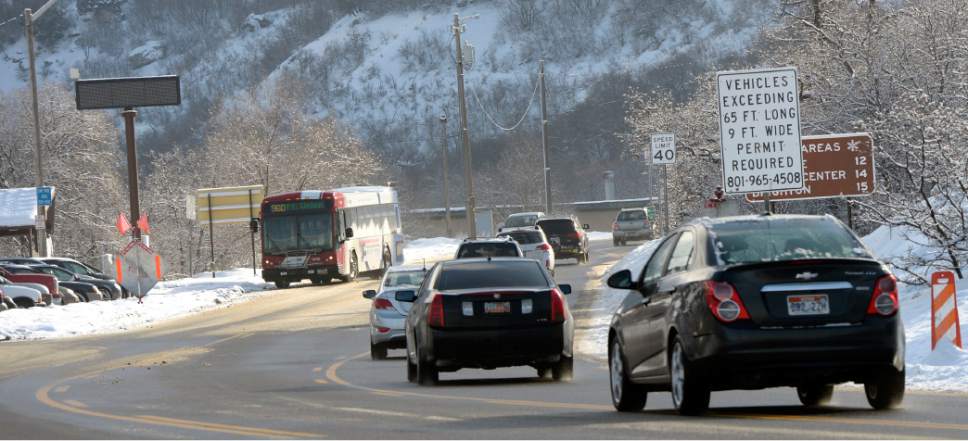This is an archived article that was published on sltrib.com in 2016, and information in the article may be outdated. It is provided only for personal research purposes and may not be reprinted.
Discord swirls all around the Mountain Accord.
What was supposed to be a collaborative approach to making decisions for the long-term benefit of the central Wasatch Mountains is becoming more controversial as the planning process goes through a key transition during an election season.
Salt Lake County Mayor Ben McAdams is asking the Salt Lake County Council to sign off Tuesday on an interlocal agreement that would help transform the public-private group — which spent two years reaching a 2015 pact on guiding principles for canyon use — into a formal governmental entity.
But the plan faces resistance on a couple of fronts.
A group of Big Cottonwood Canyon property owners affiliated with McAdams' Republican challenger, Dave Robinson, is challenging the legitimacy of the whole process. The Cardiff Canyon Owners Association filed a lawsuit last week in 3rd District Court against the Mountain Accord for allegedly violating the state's open-meetings law.
The suit came days after Van Christensen of the state auditor's office informed another planning-effort foe, Big Cottonwood Canyon resident Norm Henderson, that the Mountain Accord was subject to the open-meetings act, noting he had not reviewed whether the group was compliant.
McAdams, head of the Mountain Accord's executive committee, and staff leader Laynee Jones have a legal opinion of their own. Issued in June by county District Attorney Sim Gill, it said the Mountain Accord was not subject to the open-meetings law due to its informal structure and inclusion of private entities, such as ski resorts and environmental groups.
Nevertheless, McAdams and Jones told the County Council last week that the group generally acted as if it were bound by the law, posting meeting notices on its website and welcoming all comers. In turning the Mountain Accord into the new organization, called the Central Wasatch Commission, the only change in operating procedures will be to advertise meetings in advance on the state's open-meetings website.
Robinson disputed that openness contention in a University of Utah Hinckley Institute of Politics forum Monday with Democrat McAdams, contending private-property owners were shut out of Mountain Accord meetings where discussions took place in secret.
As a result, he added, "Mountain Accord should have done tremendous good, [but] backcountry people and the environmental people have been sold down the river."
Wayne Crawford of the Cardiff Canyon Owners Association said private-property owners felt Mountain Accord officials brushed aside their perspectives — "they told us what was best for us and would not listen to our particular concerns" — treating small-land owners differently than the ski resorts. In doing so, he added, the county ceded local control of the canyons to a regional group.
McAdams dismissed Robinson's charges, repeating for the Hinckley crowd what he had told the council last week — that he was proud of bringing together feuding parties to find compromises that avoid the kind of litigation Crawford is pursuing.
"Decisions for the last 20 years were made through litigation and contention. There has to be a better way," McAdams said, noting that with the Mountain Accord's signing, "everyone who's been shooting each other sat around a table and signed an agreement of guiding principles."
Forming the Central Wasatch Commission is the best way to do that, he said, because it would set up a governing body of elected officials — initially from Salt Lake City, Salt Lake County, Sandy and Cottonwood Heights — and an organizational structure for carrying on the group's main ongoing projects.
Those include establishing a national recreation area in the central Wasatch Mountains, pushing for more mass transit in the Cottonwood canyons this winter, and completing transportation studies in those canyons and between Salt Lake City and Park City.
But the commission plan also has encountered opposition from usually less-combative sources than Robinson's colleagues, people such as Barbara Cameron from the Silver Lake neighborhood in Big Cottonwood and members of the Granite Community Council at the base of Little Cottonwood.
They and others questioned the need for the Central Wasatch Commission to have bonding authority, apprehension that obviously resonated last week with the council's Republican majority. And they wondered why the commission needed a 50-year life to carry out its broad-based mission.
In addition, Cameron said nothing proposed to date deals with the two most pressing issues facing the canyons: dismal public sanitation and parking chaos. Despite plenty of planning, she said, "all the king's horses haven't come to grips with the real problems."
Deputy County Attorney Zach Shaw said bonding authority is included in standard language for establishing interlocal agencies, and it's unlikely the Central Wasatch Commission could ever exercise that power because it has no revenue sources to pay off a bond.
The county, he added, will retain control of land-use planning in the canyons.
Jones said the agreement's longevity also shouldn't be frightening since current funding for the process runs out at the end of 2017, giving local governments a chance to decide then if the commission should continue.
The council is being asked to contribute $200,000 next year to the commission. By the end of 2016, the Mountain Accord will have spent $7.5 million in its four-year life. The bulk of the funding, $5.6 million, came from the state.
Council meeting
The Salt Lake County Council will consider the Mountain Accord's future at its 2 p.m. workshop session Tuesday in Room N2-800 of the north building of the County Government Center, 2001 S. State.


